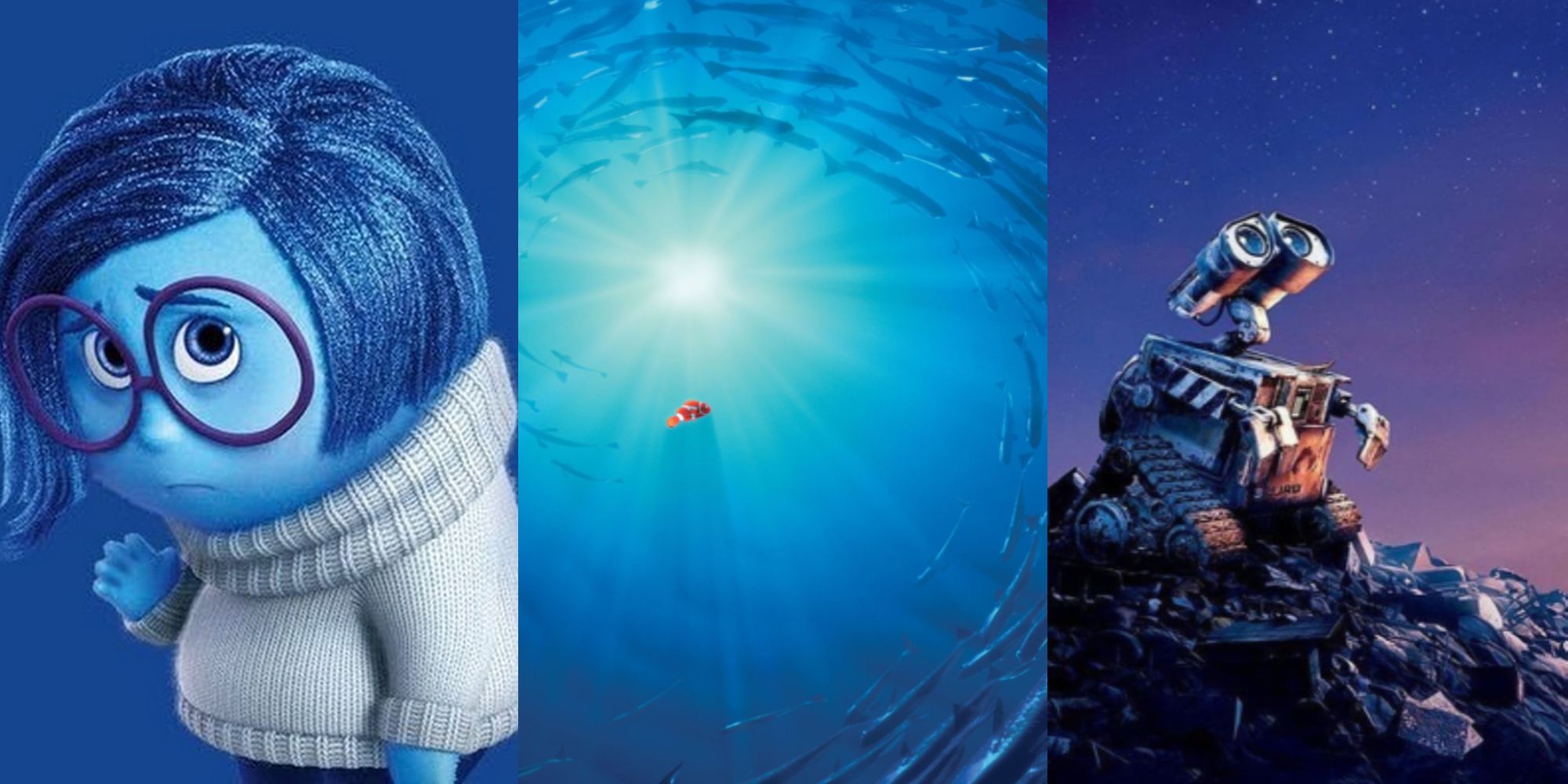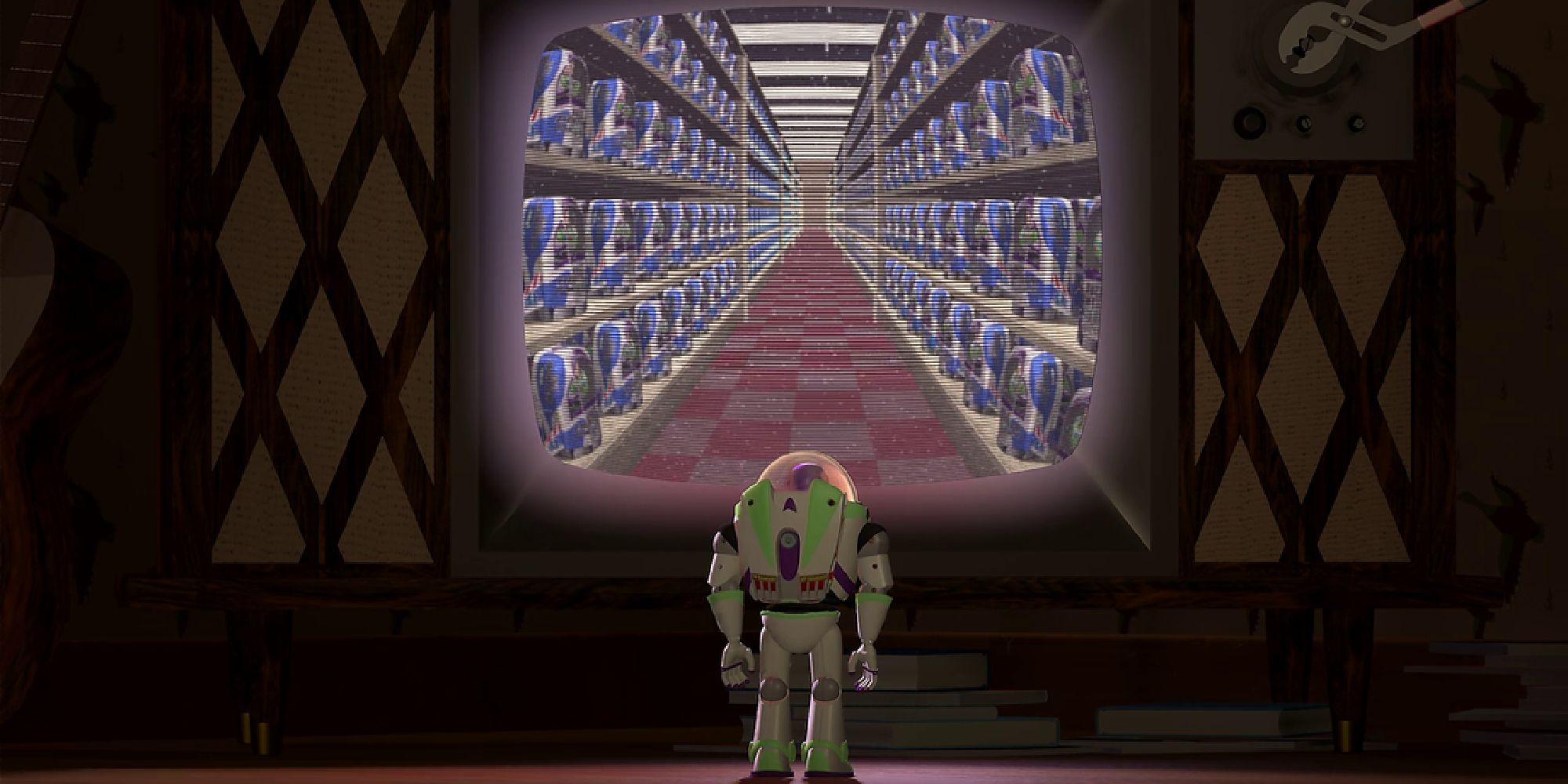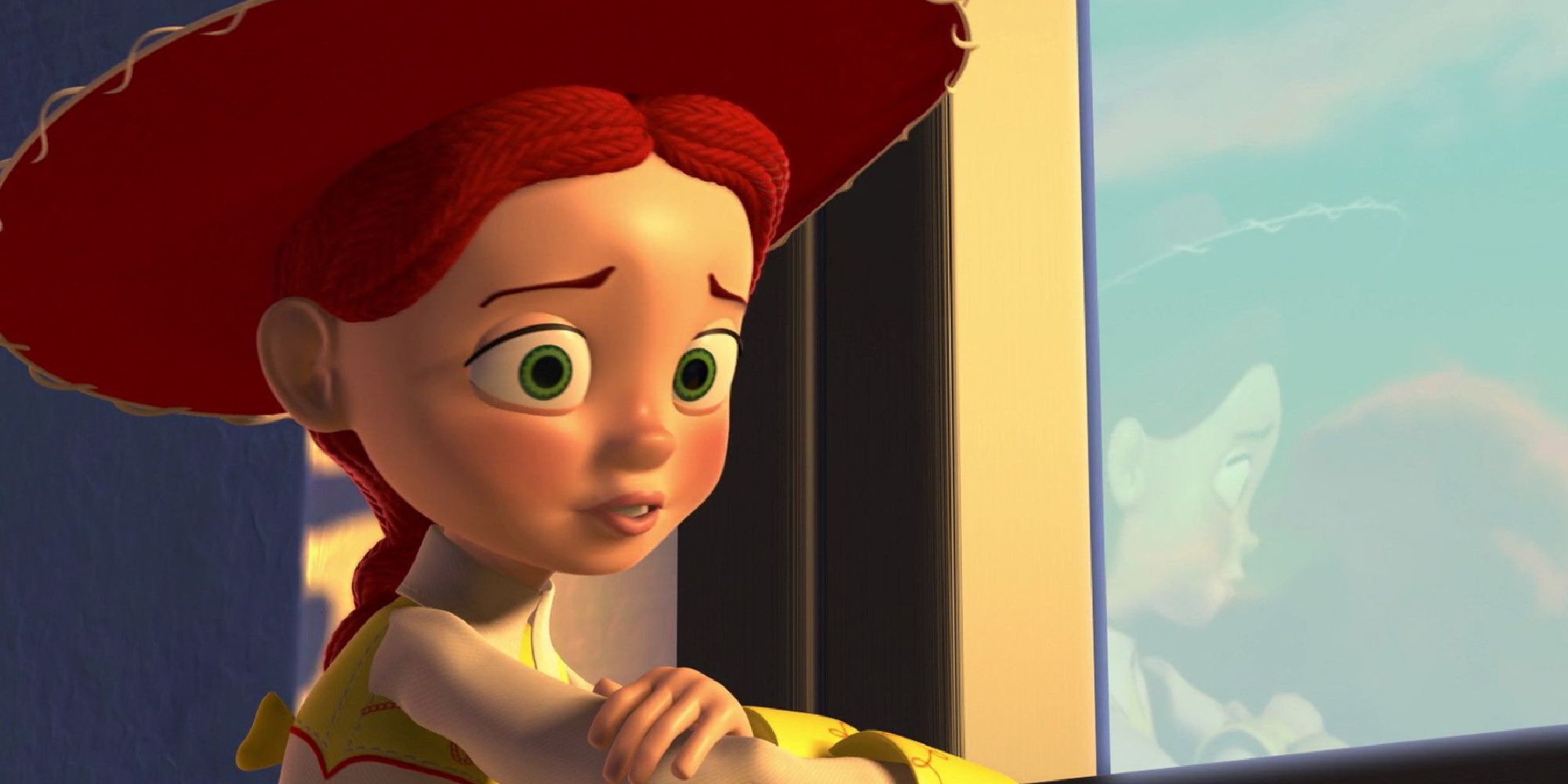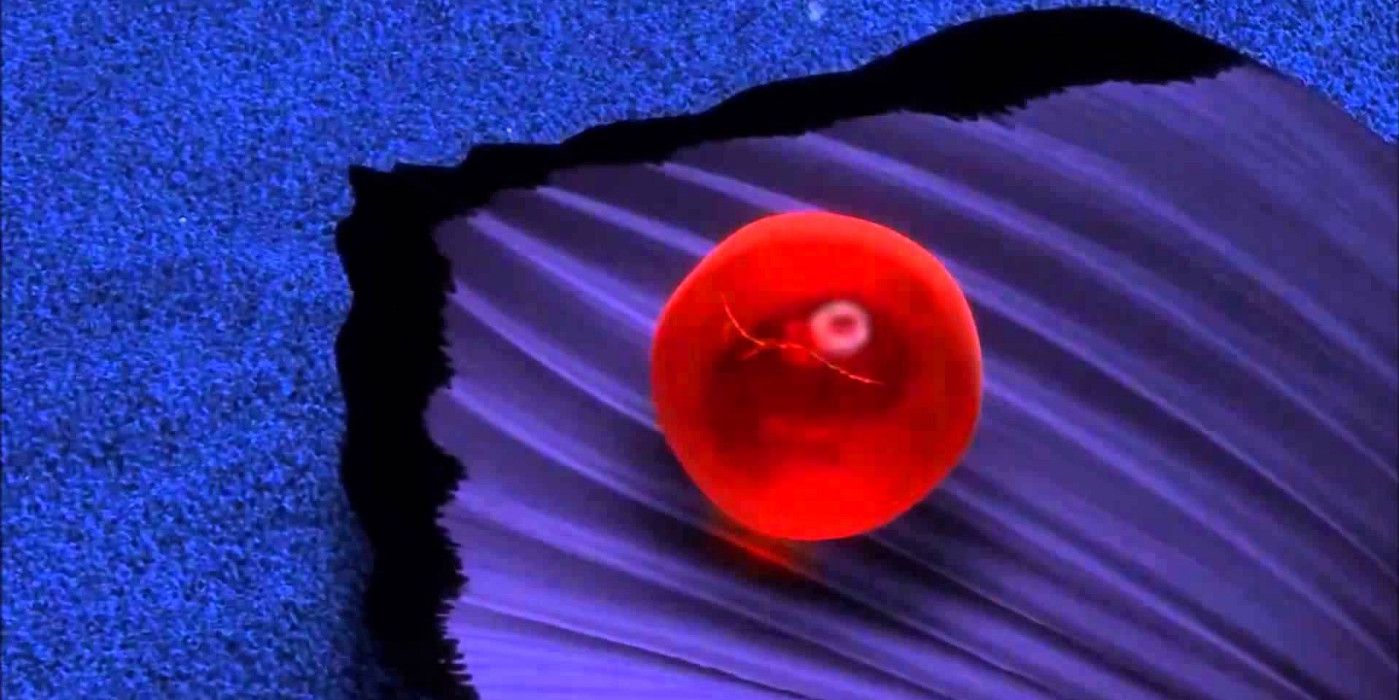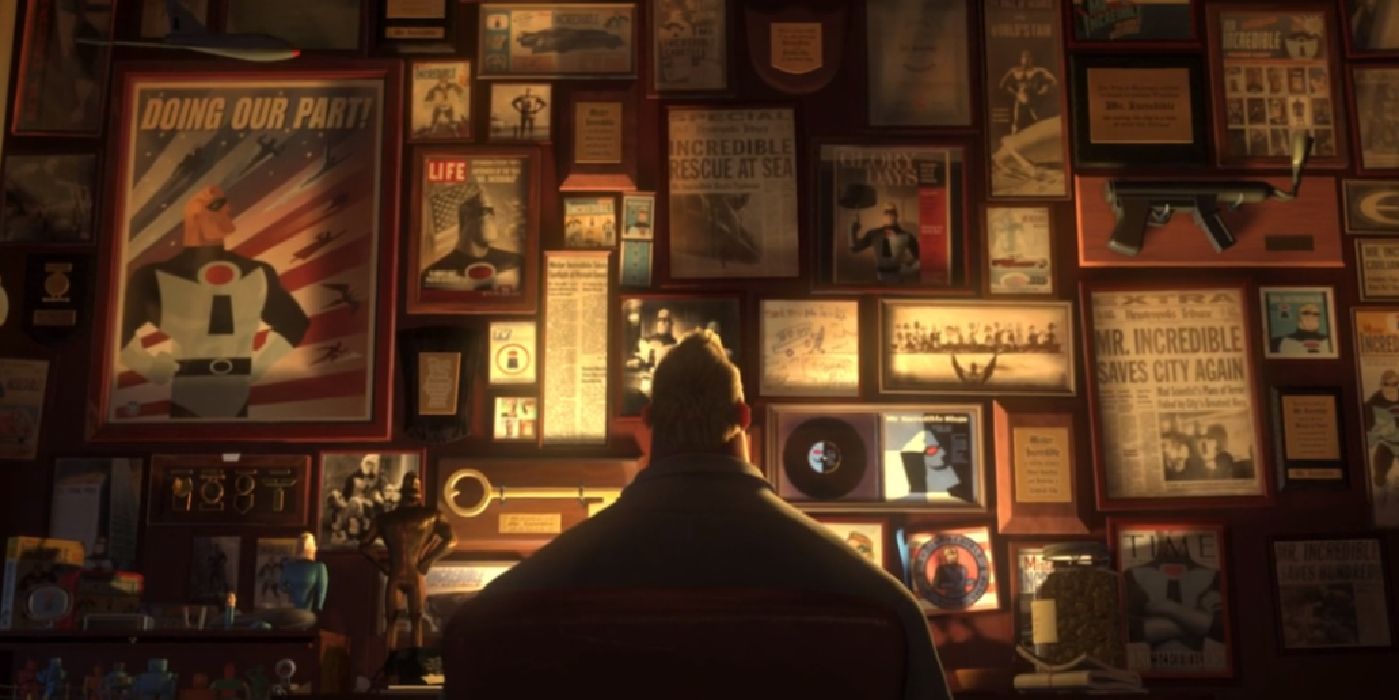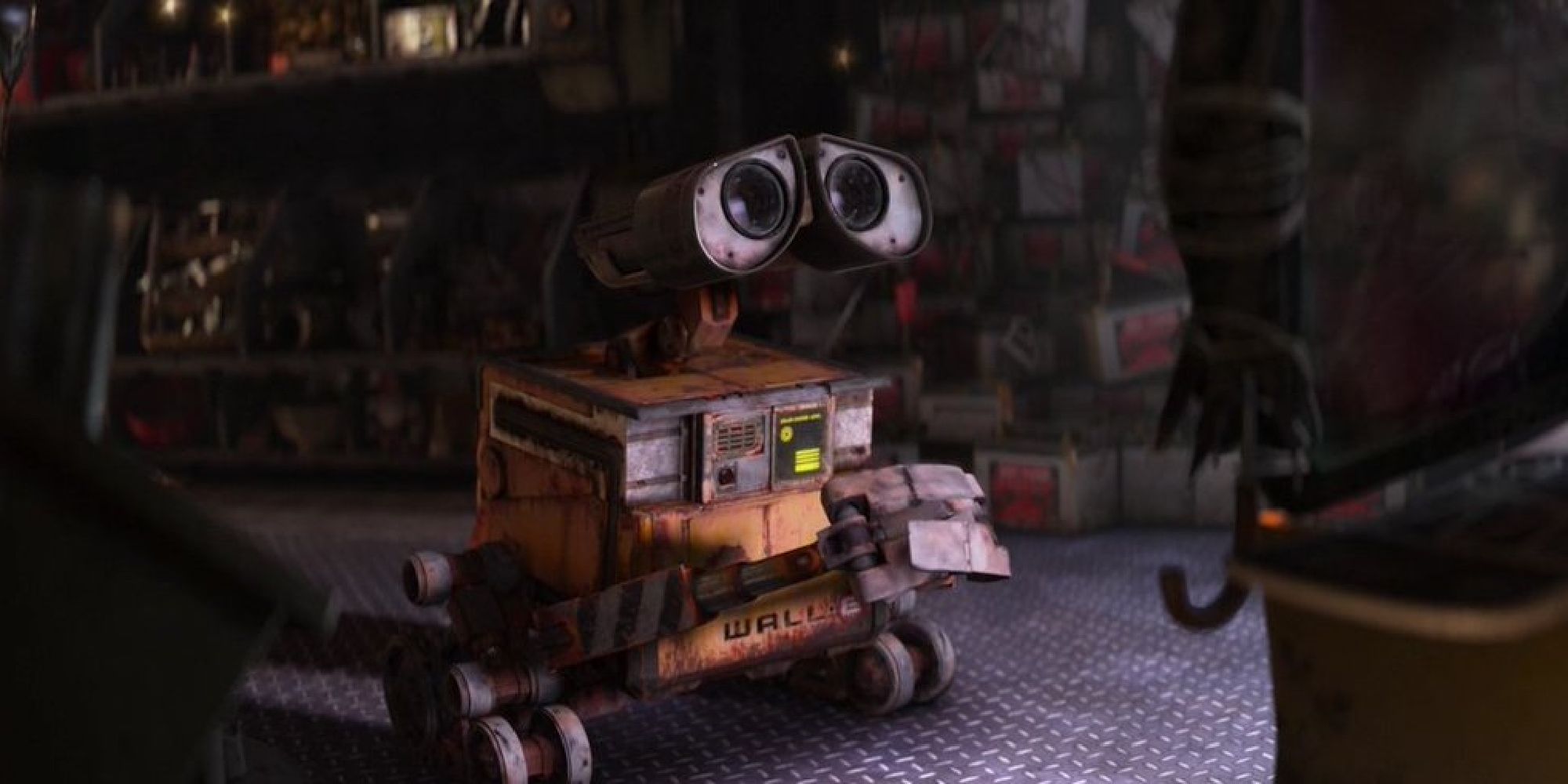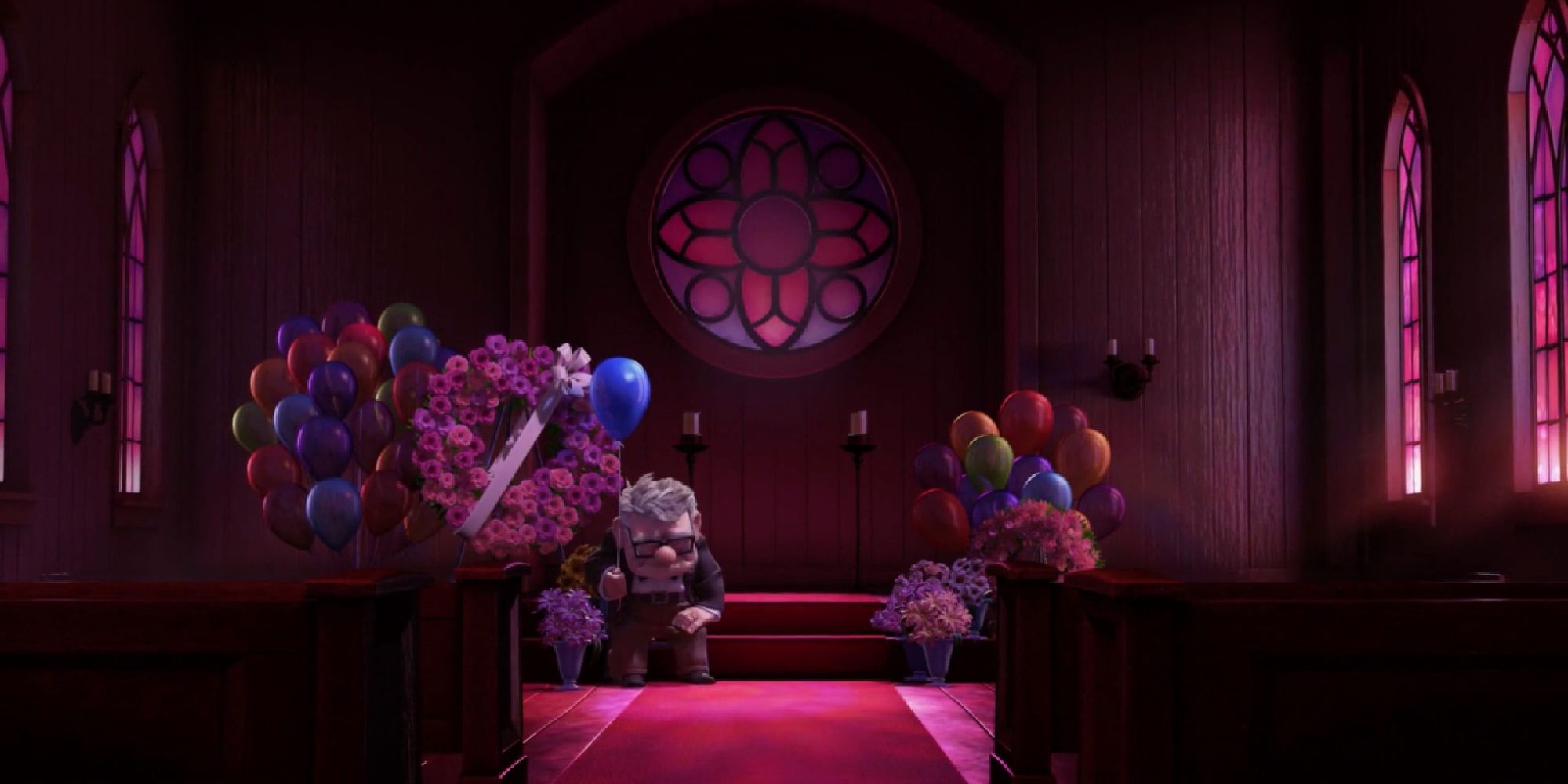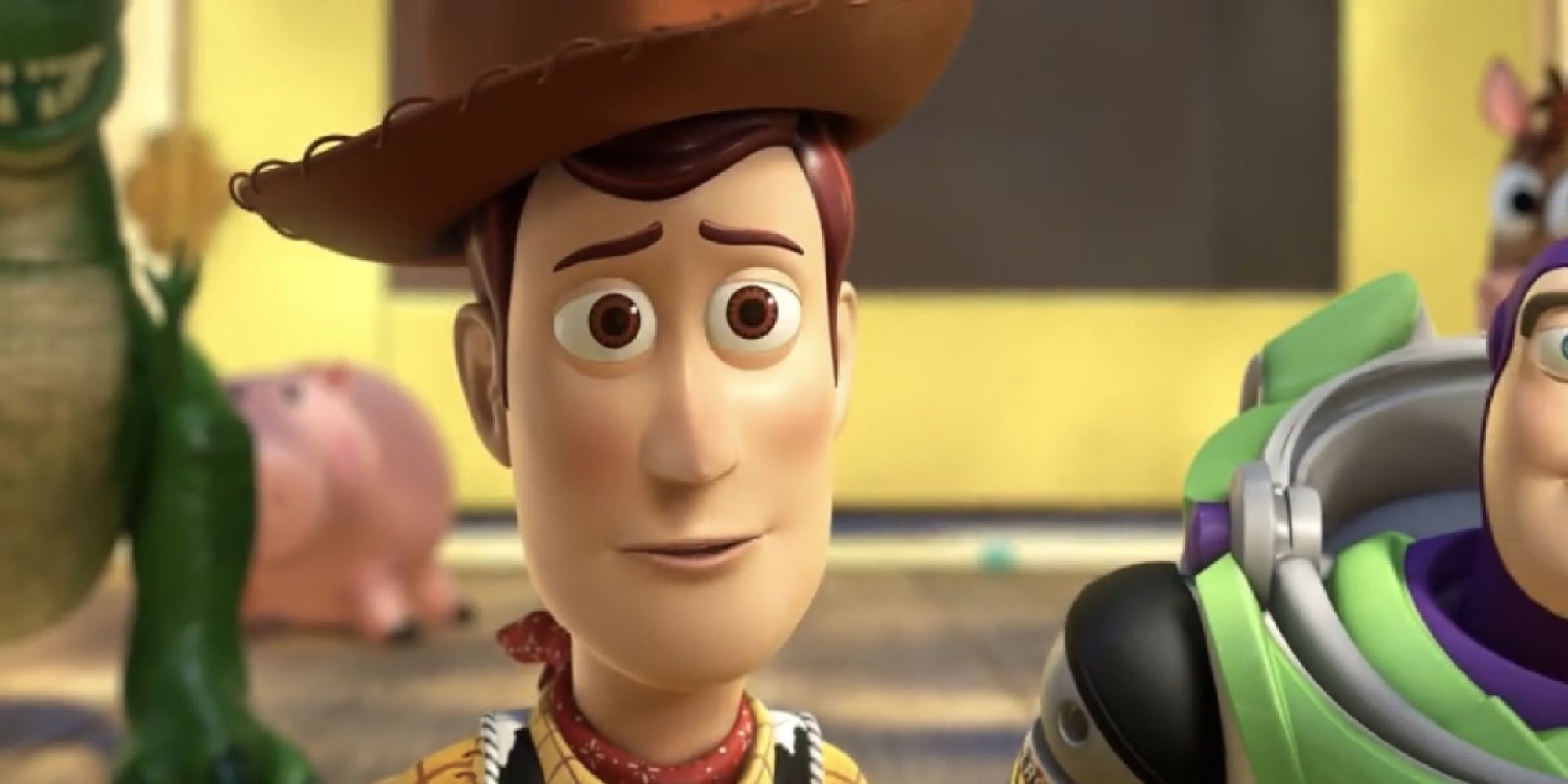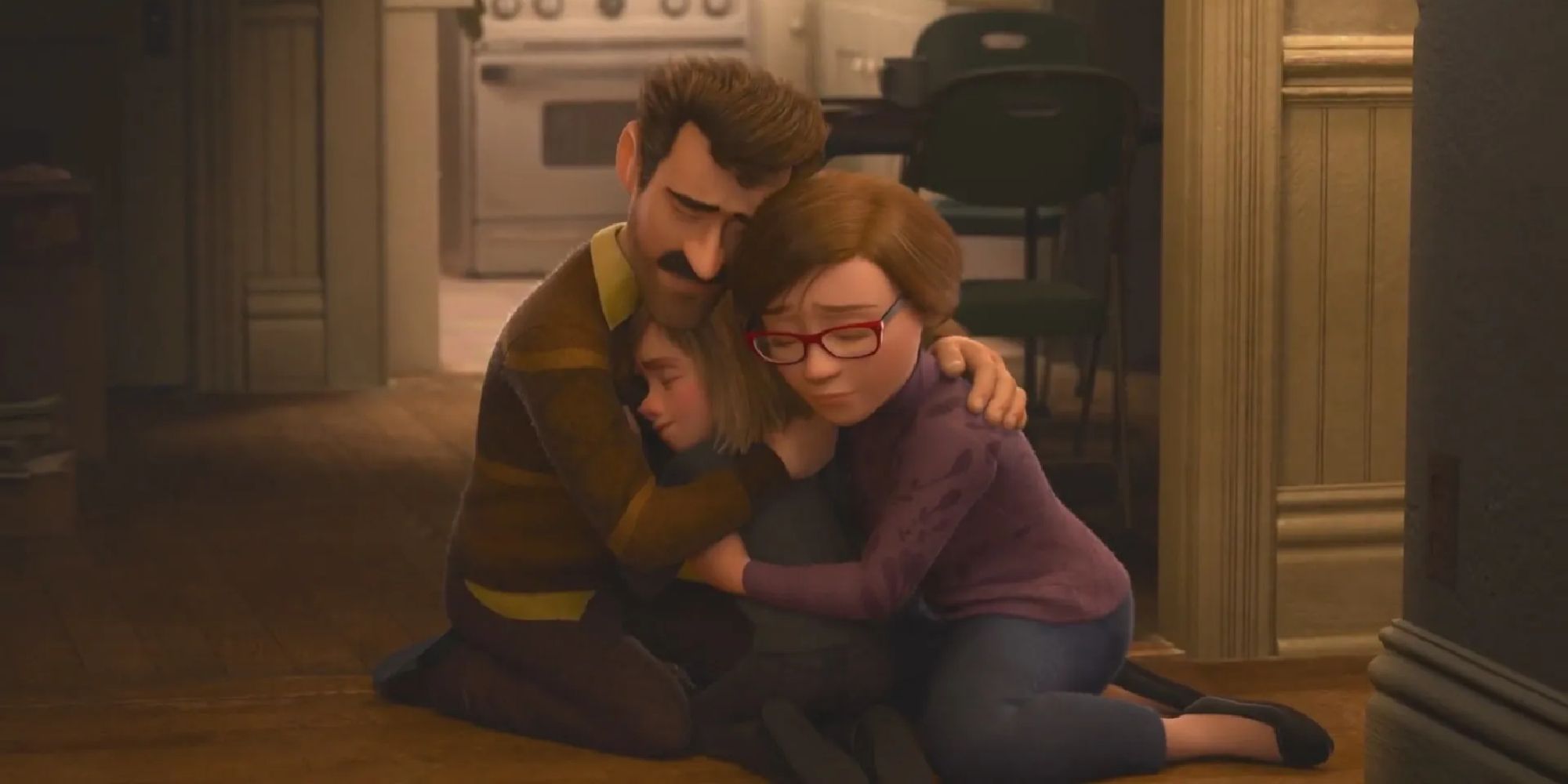It's no secret that Pixar is the unofficial king of making people cry. For almost thirty years now, they've been making emotional films for viewers of all ages that are capable of making them laugh out loud one minute and then start crying uncontrollably the next. When it comes to crafting movies that play to audience's emotions, few studios have ever done it better than Pixar.
But now that they've been at it for a while, and there's a whole generation of viewers who grew up with their earlier movies now in their 20s or even 30s, it's clear to see that Pixar movies get even more powerful as you get older. The following eight films all have moments that will be understood by younger audiences as sad, but might not be fully felt until they're older. These films and their respective scenes highlight how effectively Pixar can introduce mature themes into their films whilst still keeping them kid-friendly.
'Toy Story' (1995) - You're not special
Pixar wasn't messing around right from the get-go. Toy Story was their first feature film, and while it's mostly a comedy, a little after the halfway mark, there's a scene where Buzz sees a commercial for Buzz Lightyear action figures, and it dawns on him that he's not a real space ranger, and there countless other toys identical to him.
The pace slows down and things get sad. Buzz tries to see if he can fly, but instead ends up falling down a whole story, with one of his arms breaking off as he hits the ground. His despair and depression afterward are played for laughs, and he's happier and accepting of his position in the world by the film's end, of course, but for that one moment when the realization sinks in, Toy Story is devastating. It represents the moment you come to terms with how small you are in the world, and that's not something that's going to register with most younger viewers.
'Toy Story 2' (1999) - People you love will leave you
Pixar uses its sequel to Toy Story and one of its new characters, Jessie, to deliver an absolute gut-punch of a tear-jerking scene that hits even harder than Buzz's sorrowful realization in the first. Jessie opens up to Woody on her fears of being abandoned or forgotten, due to having an owner who grew up and lost interest in her, shown in a flashback sequence scored with 'When She Loved Me' by Sarah McLachlan.
It's a scene that's perhaps slow for kids but soul-crushing for adults, most older viewers can surely relate to a time when they drifted apart from someone they cared for, and the way it causes emotional scars that never fully heal. "You never forget kids like Emily, or Andy, but they forget you", Jessie tells Woody. It's heartbreaking and maybe even too much for kids to process and understand, but the adults watching who can empathize will likely be in tears.
'Finding Nemo' (2003) - Being a parent can break your heart
Finding Nemo stands as one of the best animated movies of the 21st century so far, Pixar or otherwise. It may star a cast of talking sea creatures, but it still manages to be a heartfelt and deeply human look at how it feels to lose almost everything, the turmoils of parenting, and how to cope with one's children growing up.
Right from the hard-hitting opening where the main character's partner and hundreds of unborn children are devoured by a predator, all the way through to father and son being reunited at the film's end, Finding Nemo is as much an emotional rollercoaster as it is a fun, underwater adventure. The fear and stress Marlin has to deal with can only really be felt by parents or those old enough to be parents, and the anxieties and pain of parenthood are depicted in a remarkably direct way.
'The Incredibles' (2004) - You will miss your glory days
Kids watching The Incredibles have most of their lives ahead of them. Adults, however, don't, and it's something the film tackles through its main character, Bob Parr, who falls into a midlife crisis and attempts to relive his glory days of being a superhero, back when he was younger, fitter, happier, and something of a celebrity.
This sense of nostalgia and melancholy is aimed at viewers who aren't just adults, but have already been adults for at least a couple of decades. It was brave of Pixar to have that element in a family film, and while The Incredibles is far from one of their saddest movies, the parts where Bob looks back on the best years of his life will still sting for older viewers.
'Wall-E' (2008) - Everyone gets lonely sometimes
The first half-hour or so of Wall-E is probably the best thing Pixar has ever done. With minimal dialogue and a focus on one lone character, it's a bold, lonely, and quietly heartbreaking open to what's otherwise a family science-fiction/adventure film.
Wall-E is technically a robot, but the loneliness he feels at being one of the few "living" things on Earth is strangely relatable. Most people won't ever feel the same level of lonely, but loneliness is a common human emotion, and something surely everyone feels at some point, and adding to that, it's an emotion that's become ever more common since the start of the 2020s.
'Up' (2009) - Life goes on after death
Up's opening is an infamously powerful tear-jerker at this point. Viewers watch Carl and Ellie's married life together, their ups and downs, and their dreams of one day going on a huge adventure together... which never materializes, due to Ellie's unexpectedly sudden death.
It's a devastating way to open a film, but in having the plot play out afterward, it drives home how life has to and will continue after the loss of someone who means the world to you. Like with The Incredibles and its midlife crisis-related themes, the devastation of the emotions in Up's opening might only be felt by viewers who have spent decades in a relationship that was brought to an end by one partner's passing. Sad for viewers of all ages for sure, but truly devastating to the older ones in the crowd.
'Toy Story 3' (2010) - Things don't stay the same forever
Toy Story 3 takes the idea explored with Jessie in Toy Story 2's flashback and applies it to all of Andy's toys. It's a movie about needing to move on in life, as the plot involves Andy moving to college, and giving away his childhood toys for good.
It ends up being more bittersweet than Jessie's situation in the second film, but it still hits hard. The toys come to accept Andy moving on with his life, but the film doesn't shy away from the fact that doing so is difficult. Adult viewers will have experienced drastic changes in their lives, including maybe moving away from loved ones, family, or friends. Toy Story 3 captures that sensation, and becomes one of Pixar's most impactful tear-jerkers as a result.
'Inside Out' (2015) - It's okay to be sad sometimes
It made sense for a studio like Pixar to make a movie that was literally about emotions, given how their films are hugely emotional affairs. Inside Out largely takes place inside a young girl's mind, as her five core emotions struggle to keep her brain wired in a way that can deal with a difficult move to a new city and new school.
The message is ultimately that people need sadness sometimes, and that while it's a difficult emotion to feel, it's a necessary and inevitable part of life. It will resonate to some extent with kids (the feeling of being sad isn't exclusive to adults, after all), but it's still a powerful concept to sit with for grown-ups, who might think they're too busy with adult life to feel much of anything. It encourages exploring and accepting all emotions, and is a touching and moving film as a result.

